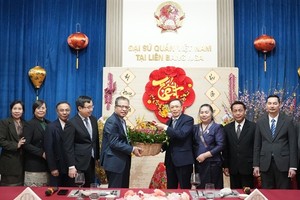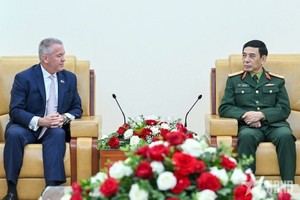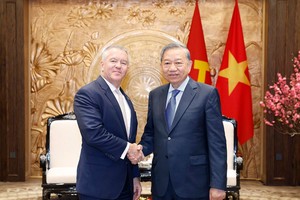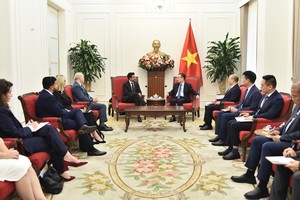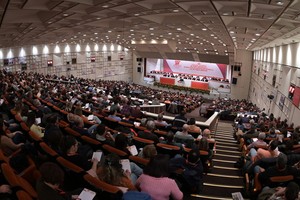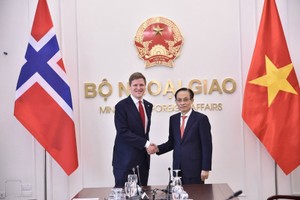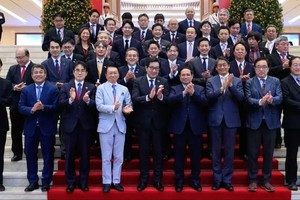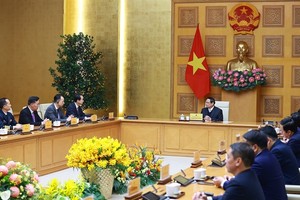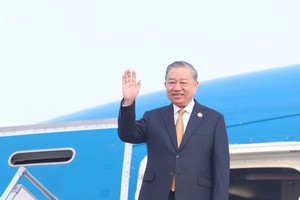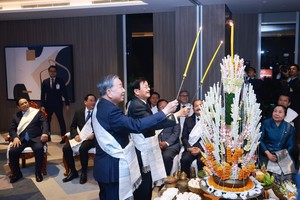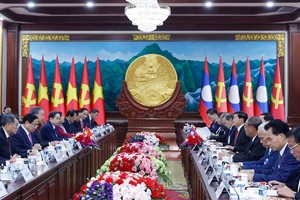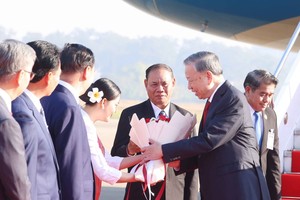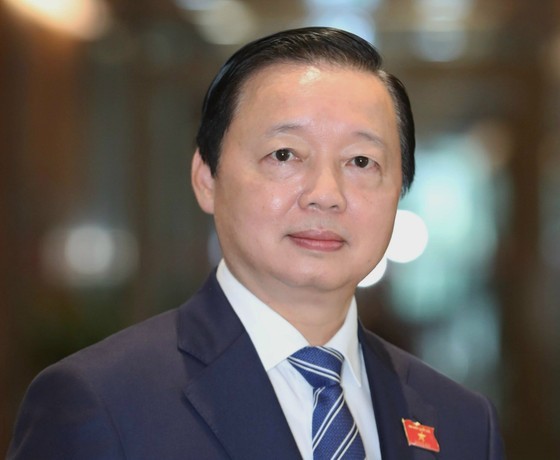 |
Deputy Prime Minister and Minister of Natural Resources and Environment Tran Hong Ha. (Photo: SGGP) |
Hailing the Japanese Government's initiative to organize the meeting right after the 27th UN Climate Change Conference (COP27), Ha said that this is an important and suitable forum to promote intergovernmental cooperation in reducing greenhouse gas emissions, thus contributing to sustainable development in the region.
The path to achieving the targets set by the Paris Climate Agreement is very tough, and requires intelligence, cooperation, and high solidarity, he stated, stressing the need to strengthen cooperation between government and government, between governments and enterprises, and use public investment to lead private finance in the context of private finance being an important resource for emission reduction efforts.
The Vietnamese representative proposed countries put forward a very methodical and realistic emissions reduction roadmap, but not at all costs, as socio-economic issues should be taken into account.
On this occasion, Deputy PM Ha also emphasized Vietnam's commitments to and efforts in responding to climate change and cutting greenhouse gas emissions, including measures to increase the proportion of renewable energies.
He proposed participating countries establish specific institutions such as a carbon credit market of the region, and a research and technology transfer center because technology is a key to reducing emissions while ensuring energy security and ensuring the state, people, and businesses have access to clean energy at affordable prices.
He also suggested setting up a scientific research support fund and a high-quality human resource training center, while stressing the need to rely on digital transformation to enhance exchanges and dialogues on policies and techniques to increase the efficiency of the implementation of emissions reduction measures and ensure the implementation of socio-economic targets.
At the meeting, delegates approved a joint statement about the “Asia Zero Emission Community” which sets forth cooperation orientations in the coming time to achieve inclusive, just, sustainable, and affordable energy transition in Asia.
